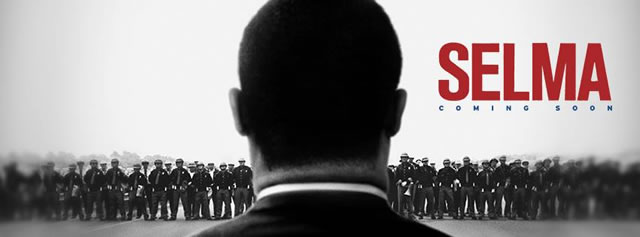“Selma” Showcases the Story Behind Dr. Martin Luther King Jr.
By AISLING MCENTEGART
Managing Editor
It is by no means easy to depict Dr. Martin Luther King Jr., one of American history’s most iconic and influential figures. This task is taken on triumphantly in “Selma”, directed by Ava DuVernay, with David Oyelowo starring as Dr. King. The story of “Selma” is told in a convincing and captivating manner due to the talent of this dynamic pair.
Although King is a much talked about and celebrated historical figure, less is known about Martin Luther King Jr. the man. “Selma” is one of the few full-length studio films concerning King. Therefore, achieving an accurate representation of King and his beliefs was of utmost importance to both DuVernay and Oyelowo.
“For me, one of the reasons that we were so inspired to make this film is so many people think they know who Dr. King is and think they know what this movement is, but don’t really. That in itself is a huge shame,” said Oyelowo.
This film differs greatly from typical historical biopics. Rather than following King from birth to death, this film focuses on a particular snapshot of his life. The film centers on the Selma to Montgomery marches of 1965, which saw King lead tens of thousands of people in peaceful protest against the discrimination which African Americans suffered.
Today, such a film strikes a particularly resonant chord given the recent controversies regarding treatment of African Americans by the police. King’s message of peace and equality before the law is every bit as relevant now as it was 50 years ago.
“We are in a cultural moment right now, where the story in “Selma” seems so important,” said DuVernay. “My hope for this film is that it really brings to light the fact that we are in a vicious cycle when it comes to violence against people of color, when it comes to the way that systems are reacting to people of color, privilege and oppression that continues permeate our society…so I’m hoping that this film is an echo though history, from 1965 to now.”
Oyelowo and DuVernay have previously collaborated on “Middle of Nowhere”, and if it were not for Oyelowo, DuVernay may not have gotten involved with this project at all. Having a primary interest in telling narratives based in the present through her film making, DuVernay did not ever envision herself focusing on films set in the past, previous to her involvement in “Selma”.
“David is the one who got me this job. We worked together on “Middle of Nowhere” and the reason I decided to do “Selma” was largely because of him. I had previously only been interested in contemporary stories, stories that take place right now,” said DuVernay. “The idea of “Selma” was not something I had in mind, but the idea of partnering in the story with David – who is a dear friend, he is like a brother to me – and to try and hold hands and tell the story and to really make a film about our history, that felt current and had some texture, some vitality to it, that’s what I saw.”
Oyelowo is just as much an advocate for DuVernay’s work as she is for his.
“Having done “Middle of Nowhere” what I saw in Ava was a very rare talent, someone who is just so great with humanity. That is what you are trying to get to every time you are telling a story,” said Oyelowo.
The story of “Selma” has a resonance given race issues raised by the deaths in recent months of African Americans at the hands of police officers in Missouri, New York and Ohio. The film’s release at the end of 2014 is highly relevant.
“[Today] you have a situation whereby local prosecutors who rely upon the police to do their jobs day in and day out, are the very same people who are now the ones who decide all or who are the ones who are giving the evidence to suggest whether a police person should be indicted. That’s a conflict of interest. There is a systemic problem that needs to be changed, in the same way that people not begin allowed to vote needed to changed,” said Oyelowo.
Oyelowo’s layered and nuanced performance allows the audience to form a new connection to Dr. King. The film allows the viewer to observe both the public and private aspects of Dr. King’s life. Insights into Dr. King’s personal life shed light on the person, and the personal insights in turn illuminate the public figure. Oyelowo achieves a strong and sympathetic balance in portraying these sides of King.
“Never more so has a character come along for me as an actor where I felt that [balance] wasn’t necessary. There is a way of playing Dr. King that is right down the middle. You focus on the speeches. You focus on the fact that he is a great man. He was a man with a political mind and all those things, but you know who is the husband, who is the friend, who is the man who is unsure, who is the man who is still existing within the silences?” said Oyelowo.
“Selma” is a film that should be seen by all this winter, not just because of the importance of the historical and contemporary messages it conveys, but also because of the artistic mastery brought to the picture by both DuVernay and Oyelowo.




Pingback: Ava DuVernay and David Oyelowo Showcase Their Talent In “Selma” | Aisling McEntegart